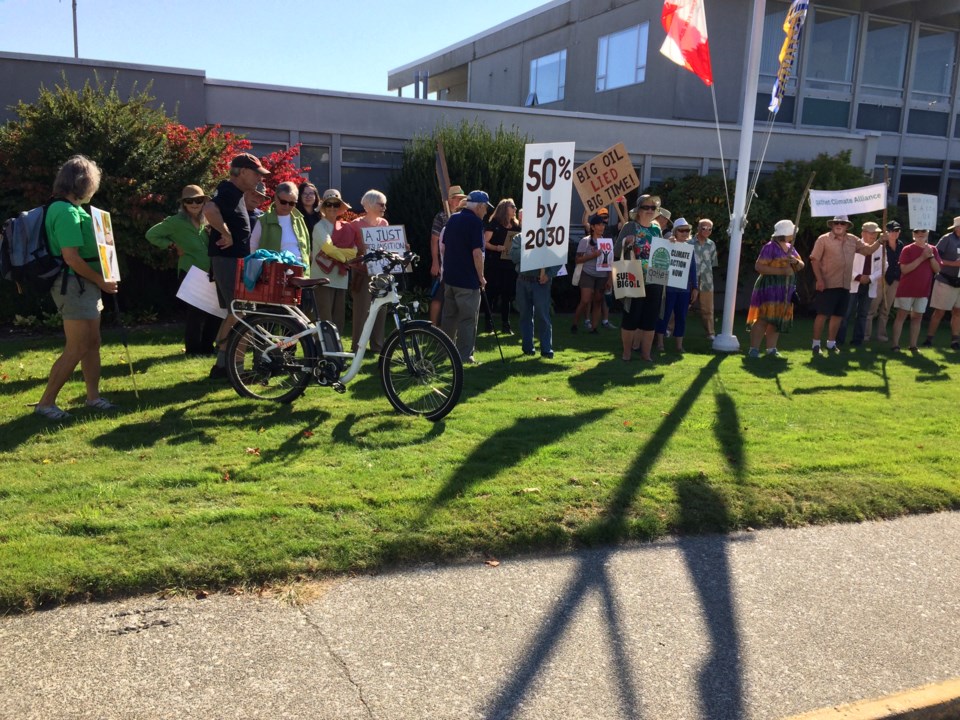During a TED talk titled: How to feng shui your fridge–and other happy climate hacks last February, UBC behavioural scientist Dr. Jiaying Zhao commented that when most people think about climate action, they immediately default to things they have to sacrifice personally for the planet.
“We are told to drive less, eat less meat, shop less,” said Zhao during the talk.
Zhao has found through her research that the framing — sacrificing for the climate — does not make people feel good, creates guilt, and that those kinds of negative emotions are not conducive to long-term behaviour change.
qathet Climate Alliance (qCA) has been trying to tackle local climate action and sustainability issues for the past nine years. qCA member Cynthia Barnes believes individual habits, community action and holding corporations to account are all important.
"Our group has been trying to encourage change in the qathet community, " said Barnes. "Some people think [living sustainably] means reducing their life and making it more miserable, but there are so many benefits to actions."
The group held its annual general meeting in December. Barnes said the group is building allies and partners with those in the community who are reducing carbon emissions. One of the main projects is to reduce emissions in qathet.
"We did an assessment of our carbon footprint some time ago, called the EcoCity footprint Tool, and that was going to diagnose what our community footprint was," said Barnes.
City of Powell River also has a carbon calculator available for individuals to calculate their personal carbon footprint.
Connecting happiness with climate action may seem incongruous, but in reality, biking, eating local produce and creating less household waste can be fun, and spark happiness, according to Barnes.
"Being more involved with your community, it's really good for us; it's important,” she added. “Getting involved in demonstrations or doing small actions makes people feel less hopeless."
Barnes said she is happy to see more electric charging stations around town and that the city has purchased more electric vehicles.
"More people are buying electric bikes," said Barnes. "Transportation is a huge factor in carbon emissions, and one of our goals is to reduce emissions by 50 per cent by 2030."
Barnes owns an electric bike and a heat pump, which she believes can contribute to reducing carbon emissions.
During Zhao's TED talk, she stated that “individual actions matter because they embody our values and our care for the planet to other people. They can spread like a ripple effect to instigate collective action. So yes, we do need system change, but we also need individual change."
To find out about qCA events, climate hacks and information, go to qathetclimatealliance.ca.
To learn how to reduce food waste and feng shui your fridge, go to Zhao's TED talk.
Join the Peak’s email list for the top headlines right in your inbox Monday to Friday.




